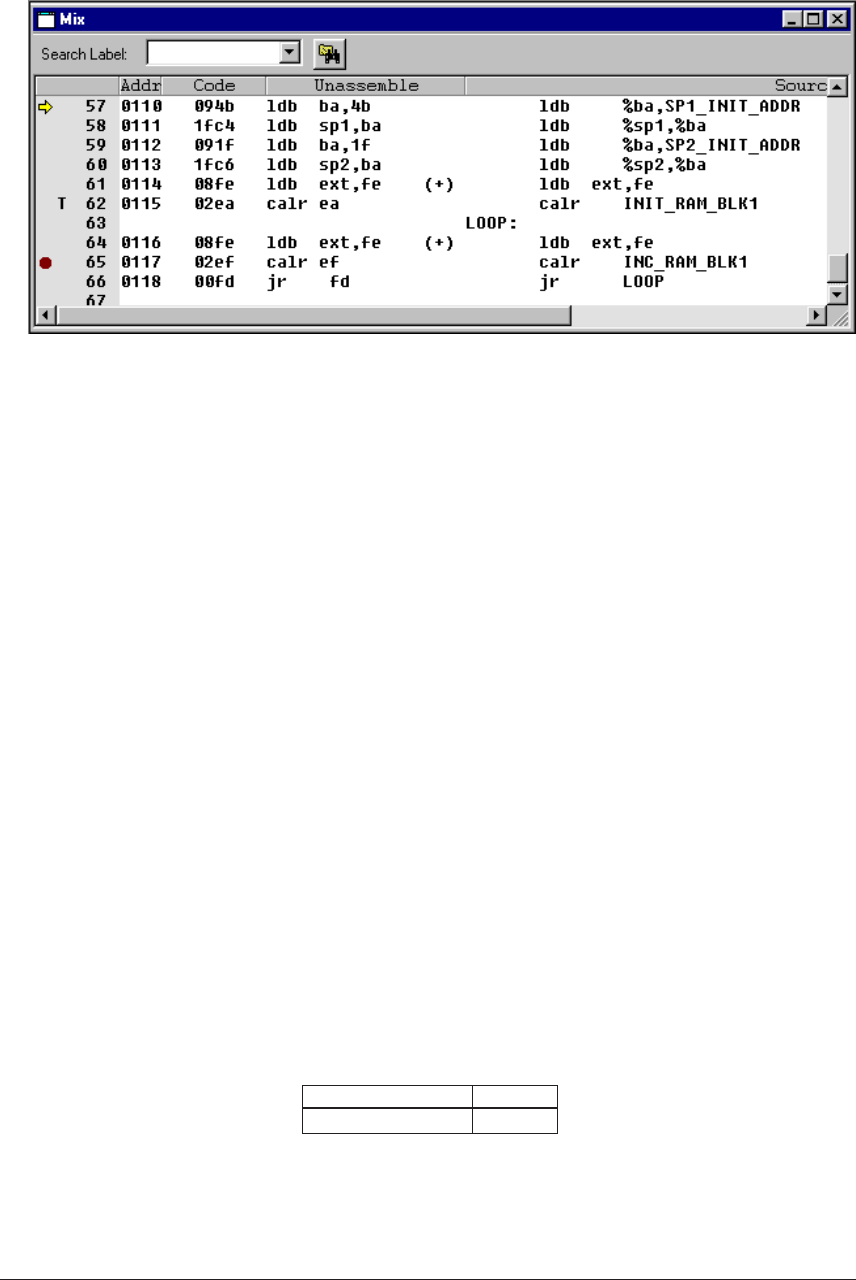
CHAPTER 8: DEBUGGER
S5U1C63000A MANUAL EPSON 143
(S1C63 FAMILY ASSEMBLER PACKAGE)
(3) Mix mode
In this mode, both unassembled codes and sources are displayed like an absolute list. This mode is
available only when an absolute object file that contains source debugging information has been
loaded.
Refer to Section 8.4.3, "[Source] Window" for details about the display contents.
Symbol reference
When debugging a program after reading an object file in IEEE-695 format, the symbols defined in the
source file can be used to specify an address. This feature can be used when entering a command
having <address> in its parameter from the [Command] window or a dialog box.
(1) Referencing global symbols
Follow the method below to specify a symbol that is declared to be a global symbol/label by the
.global or .comm pseudo-instruction.
@<symbol>
Example of specification:
>m @BOOT
>de @RAM_BLK1
(2) Referencing local symbols
Follow the method below to specify a local symbol/label that is used in only the defined source file.
@<symbol>@<file name>
The file name here is the source file name (.s) in which the symbol is defined.
Example of specification:
>bp @SUB1@test.s
(3) Displaying symbol list
All symbols used in the program and the defined addresses can be displayed in the [Command]
window.
Table 8.8.2.2 Command to display symbol list
Function Command
Displaying symbol list sy


















